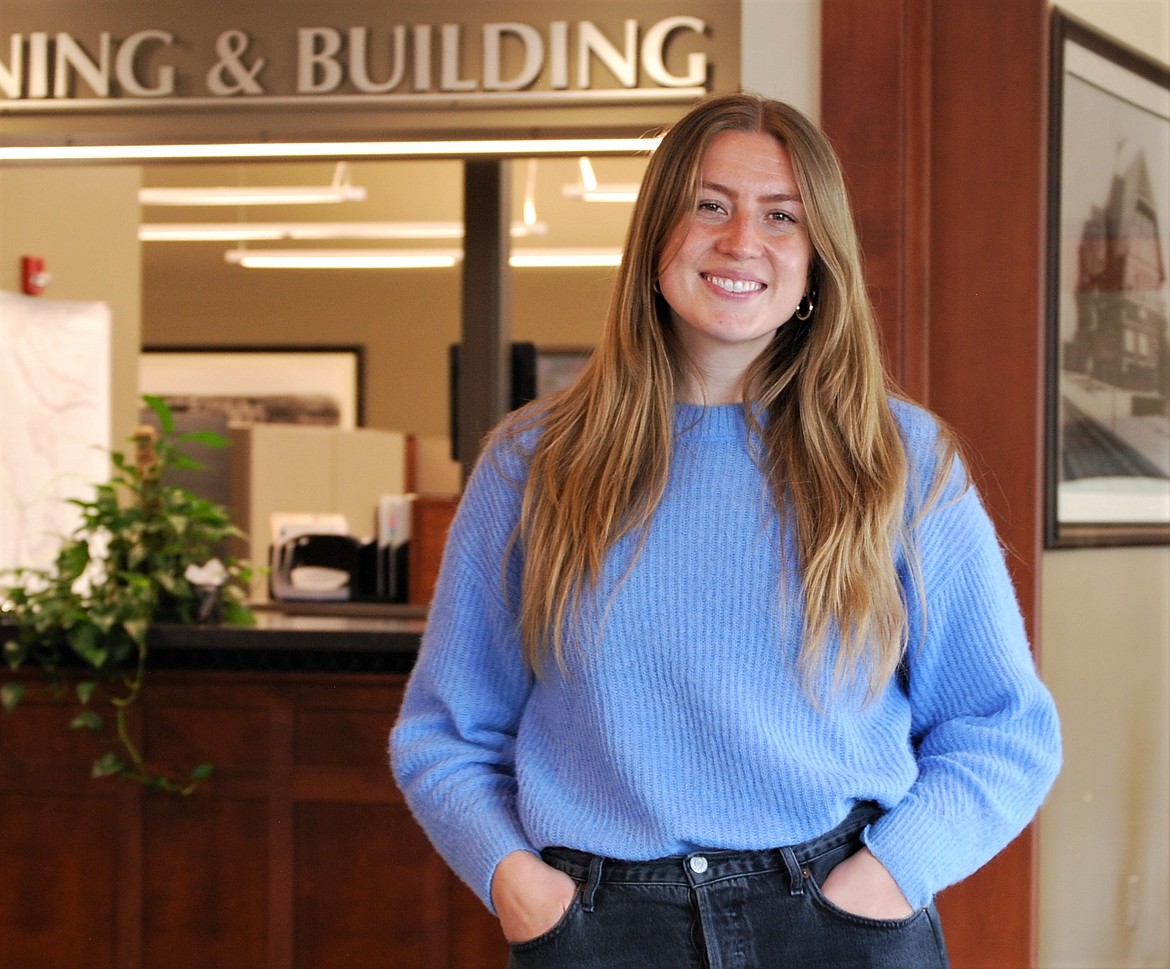Getts looks to guide Whitefish’s efforts on affordable housing
Marissa Getts believes that land use planning is a deeply human endeavor.
When it comes to dealing with policies of planning, she’s quick to look at the impacts on the people living on the land. And having watched the rapid changes in the Flathead Valley in the last few years she’s keenly aware of the repercussions of growth.
“People went through this collective trauma,” she said of dealing with the growth. “People are watching the change happen and worrying about whether they will have a place here and some have already had to move out of state. It’s devastating to have lived and worked in the state your whole life and then have to leave.”
As the new affordable housing coordinator and long-range planner for the City of Whitefish, Getts will be looking to guide the community through the impacts of those changes with endeavors to tackle a lack of affordable housing and planning for the future. She says the symptoms of that rapid growth are being seen in the public process as folks are less willing to collaborate with one another than in the past.
“We have to really start planning not just to ensure that everyone is included in participation but that we’re talking about it in a really human way,” she said.
A 2011 graduate of Columbia Falls High School, Getts earned her bachelor’s in sociology from Brigham Young University and it was there that she began exploring a career in planning after hearing a guest lecture on the topic.
“I realized that there’s a whole field that looks at how people relate to each other spatially and how people relate to the land and the environment,” she said. “I thought this is incredible.”
AFTER TAKING a few years off, she headed to the Harvard University Graduate School of Design earning a master's in urban planning. She enjoyed the school’s approach of looking at planning from a design perspective.
“How do we think about places spatially and aesthetically, and how do we build with the materials we use,” she said. “I was excited about getting the spatial skills rather than just the policy skills.”
At Harvard, she was tasked with solving planning challenges using a myriad of different options.
“I loved having the creativity and choosing the structure to solve it,” she said. “I was tasked with seeing what are the tools that are available to solve this. I loved being able to create that strategy that solved problems creatively.”
But through her studies, Getts learned how much of planning is based in the school of thought revolving around large cities. Where her classmates thought of her hometown of Columbia Falls as rural, she thought of the city itself as an urban space.
“There’s this huge mismatch of scale in planning,” she said. “Here we have this huge robust relationship with the land and the ecosystems that we live in — that’s just everyday life. One of the big differences is that a lot of times we’d be talking [in class] about nature as pockets of parks within a sea of developed land, but the context here is pockets of urban space amongst these larger ecosystems.”
The experience made her aware of how places back home in Montana — like Columbia Falls and Whitefish — aren’t represented in the standard concepts of land use planning. But also made her look at how cities have been designed.
“What if we built cities differently,” she said. “How would that change how people relate with places like Montana, and how they visit it. Maybe they would steward this place differently as visitors.”
AS PART of her graduate studies, Getts began to examine growth in Whitefish doing independent research with the Gateway and Natural Amenity Region Initiative as it coordinated a series of case studies of gateway towns to public lands.
“We looked at growth, what were the turning points, and what has changed about the community because of that growth,” she said. “It was looking at what were the turning points in the community and how does that impact our way forward? How do we make this growth work for everyone?”
Following her studies, Getts says she didn’t know if she would be able to return to the Flathead Valley. Fortunately, the city was looking for a planner. Now she’s looking to apply her education, knowledge that includes working for an affordable housing nonprofit in Utah, and her passion regarding land use planning. She looks to assist the community as it continues to deal with the impacts, but also the need to have growth as part of a healthy city.
“We’ve had bust cycles and there is not enough economic growth for people to come back here and make a living so you do have to leave,” she said. “We need some growth so people can stay here. But how to find the happy middle so there’s enough growth to stay, but there’s housing and there’s affordable housing.”
As affordable housing coordinator, she will be working with the Whitefish Housing Authority and other community groups as they look to develop affordable housing projects. For the long-range planning side of her job, the focus is on how city zoning and planning are dealing with growth and she’ll be taking the lead updating Whitefish's growth policy.
“I’m really excited to be the person who gets to really think about the relationship between economics and zoning, and to be able to work in both of those spaces to actively create solutions,” she said.
Getts recognizes that there’s a lot of work to be done surrounding affordable housing efforts, but says after speaking with so many people who agree that a lack of affordable housing is an issue she looks forward to orchestrating and coordinating efforts to find solutions.
“I have a saying,” she says. “Hope is strategy and strategy is hope.”
Features Editor Heidi Desch may be reached at 758-4421 or hdesch@dailyinterlake.com.


